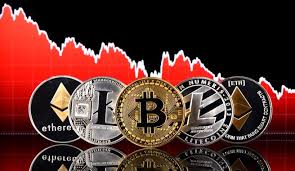
The Importance of Crypto Trading Execution Speed
In the fast-paced world of cryptocurrency trading, execution speed is of paramount importance. The ability to execute trades quickly can significantly affect a trader’s profitability and overall success. Factors such as market volatility, liquidity, and the technological infrastructure of trading platforms play crucial roles in determining how fast trades can be executed. Understanding these elements can help traders optimize their approaches and gain a competitive advantage. For further insights, you can delve into discussions like those found at Crypto Trading Execution Speed http://www.allstocks.com/stockmessageboard/cgi-bin/ultimatebb.cgi?ubb=reply;f=2;t=009875;replyto=000000.
What is Execution Speed?
Execution speed refers to the time it takes from when a trader submits an order until that order is completed. This speed can vary depending on numerous factors, including the type of order placed (market or limit), the current state of the market, and the efficiency of the trading platform being used. In cryptocurrency, where prices can change within seconds, having a fast execution speed can be the difference between a profitable trade and a loss.
Factors Affecting Execution Speed
Several key factors influence the execution speed for crypto traders:

- Market Volatility: Cryptocurrencies are known for their extreme volatility. Rapid price movements can affect order execution, as the market could change before a trade is completed.
- Liquidity: Liquidity refers to how easily an asset can be bought or sold without affecting its price. Higher liquidity usually results in quicker execution speeds, while lower liquidity can lead to slippage.
- Order Type: Market orders typically execute faster than limit orders. Traders who understand the implications of different order types can strategize accordingly.
- Trading Platform Technology: The infrastructure of the trading platform is critical. High-frequency trading platforms are designed to minimize latency and maximize execution speed.
Technological Innovations
Advancements in technology have significantly impacted execution speeds in crypto trading. Exchange platforms are increasingly utilizing sophisticated algorithms, better data processing capabilities, and optimized order routing systems. Some cutting-edge technologies include:
- On-Chain Transactions: Innovations in blockchain technology have made it possible to facilitate faster and cheaper transactions, reducing the time needed for trade execution.
- Co-location Services: Some traders opt for co-location services, which involves placing their servers in close proximity to exchange servers to reduce latency.
- Algorithmic Trading: Many traders use automated trading systems that can react to market conditions within milliseconds, significantly increasing execution speed.
Strategies to Improve Execution Speed
Traders looking to enhance their execution speed can adopt several strategies:

- Choose the Right Exchange: Selecting an exchange known for high liquidity and advanced technology can improve trade execution speed significantly.
- Stay Informed: Keeping abreast of market conditions can aid in making timely trading decisions, thus improving execution.
- Utilize Stop-Loss Orders: By setting stop-loss orders, traders can automate their exit strategies, enabling faster execution during volatile market conditions.
- Test Trading Strategies: Backtesting various strategies can help identify which execution methods yield the best results in terms of speed and profit.
Measuring Execution Speed
Traders often measure execution speed in milliseconds. To effectively assess your execution speed, consider the following metrics:
- Latency: The time delay between placing an order and when it is processed by the exchange.
- Slippage: The difference between the expected price of a trade and the actual price at which it is executed.
- Fill Rate: The percentage of orders that are filled at the desired price or better.
Conclusion
Crypto trading execution speed is a crucial aspect that can determine a trader’s success. By understanding the factors that influence execution speed and utilizing technology effectively, traders can enhance their strategies and adapt to the rapid changes in the market. Ultimately, being able to execute trades swiftly and efficiently allows traders to capitalize on opportunities in the dynamic cryptocurrency landscape.
